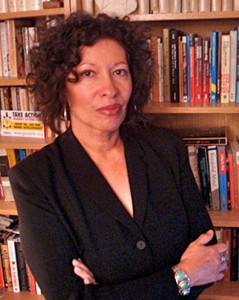 Check out Judith LeBlanc’s thoughts on the Occupations sweeping the nation. I think they are very helpful when thinking about how to relate to the Occupations. Judith is the National Field Director of Peace Action, the largest grassroots peace organization in the United States. Judith provides some analysis of the growing movement mostly the positive aspects. She does not go into any possible negative or divergent direction from peace and justice the Occupations could go. That we will have to find somewhere else.
Check out Judith LeBlanc’s thoughts on the Occupations sweeping the nation. I think they are very helpful when thinking about how to relate to the Occupations. Judith is the National Field Director of Peace Action, the largest grassroots peace organization in the United States. Judith provides some analysis of the growing movement mostly the positive aspects. She does not go into any possible negative or divergent direction from peace and justice the Occupations could go. That we will have to find somewhere else.
Erica Smiley, new contributing editor wth Organizing Upgrade, interviewed Judith LeBlanc, Peace Action Field Director, to get her opinion on how labor and other mass organizations should strategically relate to Occupy Wall Street. Peace Action is the largest grassroots peace organization in the US. Judith is currently helping to coordinate the activities of the New Priorities Network, a newly organized national network of community, labor, faith and peace groups who are working to reduce military spending to fund human needs programs. She is a member of the Caddo Tribe of Oklahoma.
Given your existing efforts to make Wall Street pay, how do you think the Occupy Wall Street developments open the door on sharper demands or more focused strategy, if it does at all?
At the October 5 labor demonstration on Wall Street, a labor leader said , “We have found each other.” A new kind of 21st century solidarity is being born. It began in Tahrir Square, spread to WI and Ohio and continues now on Wall Street and in over 900 cities and towns. The era of single issue organizing is beginning to end. The occupations are drawing movements together in solidarity that are not always willing to stand together without a lot of negotiations and pre-planning.
Although the search for strategic allies has always been a part of an effective organizing strategy, what is new is that we must connect with spontaneous actions. We have to be able to meld what we have been organizing to the spontaneous rejection of the status quo and strengthen our organizing with solidarity. Solidarity is as old as dirt. But lifting up and supporting the spontaneous actions by others not a part of the movement we, as organizers have been building, is not.
It is a recognition that we cannot win without responding to new movements, especially when those actions are pointing to the systemic nature of the crisis problems we face.








